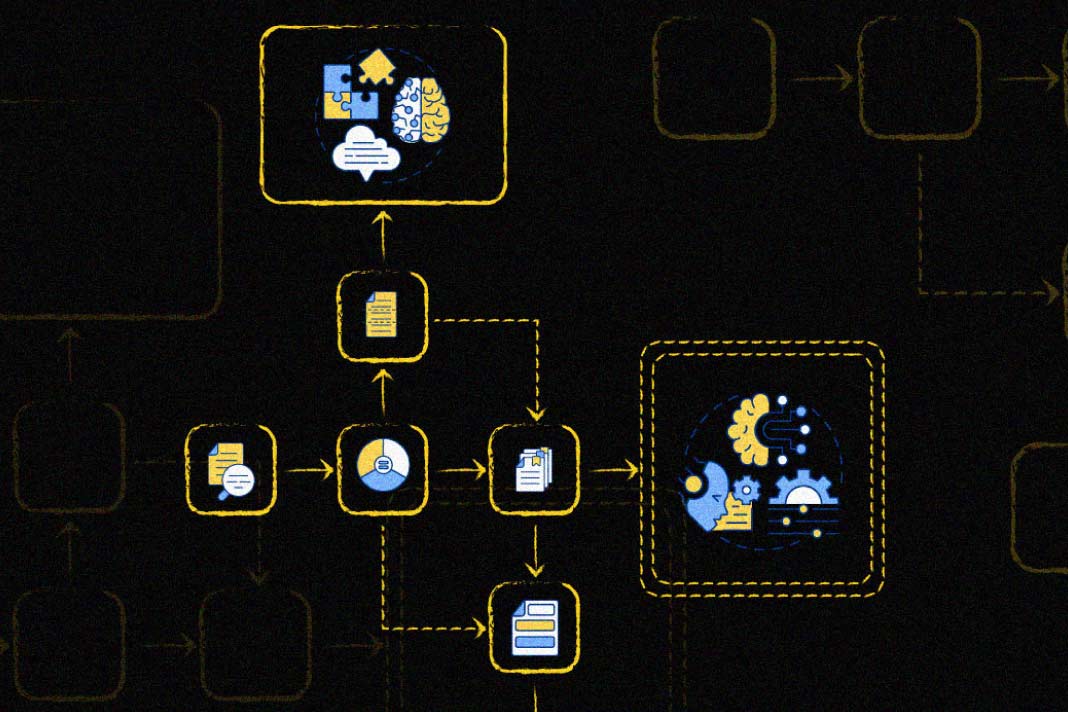New ANS framework by Amazon, Intuit, Cisco aims to secure AI agents. Nic Adams (0rcus) shares insights on its benefits, challenges, and future impact.
 The burgeoning landscape of artificial intelligence agents has just seen a significant stride towards standardization and security. A new paper published on arXiv, authored by researchers from industry giants Amazon, Intuit, and Cisco, introduces the Agent Name Service (ANS)—a proposed universal directory for secure AI agent discovery and interoperability. This development has quickly drawn the attention of industry experts, including Nic Adams, Co-Founder and CEO of 0rcus, who views it as a critical step forward.
The burgeoning landscape of artificial intelligence agents has just seen a significant stride towards standardization and security. A new paper published on arXiv, authored by researchers from industry giants Amazon, Intuit, and Cisco, introduces the Agent Name Service (ANS)—a proposed universal directory for secure AI agent discovery and interoperability. This development has quickly drawn the attention of industry experts, including Nic Adams, Co-Founder and CEO of 0rcus, who views it as a critical step forward.
“This framework presents a comprehensive approach to AI agent identification and security,” comments Nic Adams. He highlights that by drawing inspiration from the familiar Domain Name System (DNS) and integrating Public Key Infrastructure (PKI), ANS offers a structured method for seamless agent discovery and robust authentication. Its design, notably protocol-agnostic, combined with capability-aware resolution and a modular Protocol Adapter Layer, positions it as a “foundational component for secure multi-agent ecosystems,” according to Adams.
The potential impact of ANS on enterprise IT and cybersecurity operations is substantial. Its implementation promises a standardized framework for registering, authenticating, and diligently managing AI agents. This ensures that only verified agents can interact within a given system, significantly reducing the risk of unauthorized access and facilitating improved monitoring of agent activities. Furthermore, Adams notes that adopting “structured naming conventions and lifecycle management mechanisms will aid in maintaining a clear inventory of active agents, streamlining compliance and audit processes.”
Also Read: Is Agentic AI Already Changing Your Workforce?
However, the path to universal adoption for a DNS-inspired model like ANS has its challenges. Adams points out that historical DNS infrastructures have frequently been targets for sophisticated attacks, such as cache poisoning and denial-of-service. “Translating these vulnerabilities, via an AI agent, will expose systems to similar threats if not adequately mitigated,” he cautions. He also emphasizes that the framework’s reliance on PKI necessitates stringent certificate management practices to prevent potential issues like certificate spoofing or unauthorized certificate issuance. Additionally, the inherent scalability of ANS will need continuous rigorous testing to ensure it can handle a vast and ever-growing number of agents without performance degradation.
Despite these hurdles, Adams maintains an optimistic outlook on the initiative. “This is a great step toward establishing trust and interoperability in AI agent ecosystems,” he asserts. As autonomous agents become increasingly prevalent across various sectors, Adams believes that ANS will prove crucial in foundationalizing secure and efficient operations.
Also Read: As AI Takes Over Communication, What Are We Losing?
However, the success of such an ambitious system hinges on two critical factors: widespread adoption across the industry and continuous refinement to proactively address emerging threats, particularly in light of rapid technological advancements. Adams concludes with a call for collective action, stressing that “collaboration among industry stakeholders is always essential when realizing the future of AI-driven interactions.” This collaborative spirit will be key to navigating the complexities and fully realizing the promise of AI-driven interactions securely and reliably.



